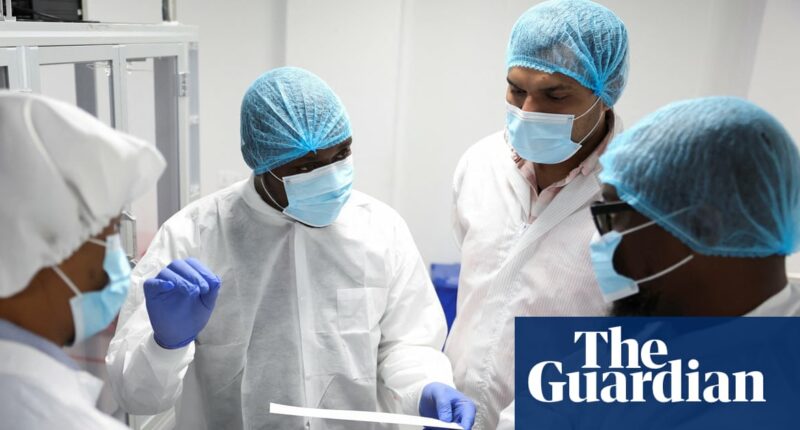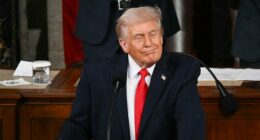Share this @internewscast.com
The United States is looking to strike new deals with other nations to exchange information about pathogens that could trigger widespread disease outbreaks, in return for reinstating aid to combat health issues like HIV and malaria, as revealed by government documents.
Following the sudden cessation of prior agreements earlier this year, the Trump administration is pursuing fresh bilateral aid arrangements with multiple countries. These are part of the newly unveiled America First Global Health Strategy, introduced in September.
According to a draft template reviewed by the Guardian, the proposed memorandums of understanding with partner nations include funding provisions aimed at addressing diseases such as malaria, tuberculosis, HIV, and polio. Additionally, the funding will support efforts in surveillance, laboratory systems, and electronic health records.
The agreements propose that over a five-year period, countries will be expected to increasingly shoulder the financial responsibilities for these health initiatives.
In exchange for the aid, countries must agree to promptly share with the U.S. biological specimens and genetic sequences of pathogens capable of causing epidemics, within days of discovery.
This initiative could potentially disrupt global efforts to enact a new pandemic agreement that ensures equitable access to vaccines, treatments, and diagnostics, according to health advocates.
A full specimen-sharing agreement – envisaged as a 25-year commitment – is still being drafted, the memorandum says, but there is no reference in the current document to countries receiving any specific benefits for sharing, such as guaranteed access to medicines developed as a result.
Access to those benefits proved a key sticking point in negotiations for the pandemic agreement, reached earlier this year, governing how the world will respond to future outbreaks. Developing countries fear a repeat of the Covid-19 pandemic when they struggled to access the vaccines and medicines that became available.
A decision on that element of pandemic response – a “pathogen access and benefit sharing” (Pabs) system – was pushed back for further negotiations. The system will form an annex to the main agreement, but must be in place before the agreement opens for signatures.
The draft memorandum and accompanying technical guidance also suggests that countries will be expected to recognise approval of drugs by US regulators as meeting domestic regulatory requirements, particularly where there are “large domestic markets [or] other strategic reasons”.
News of the draft US memorandum broke as country and civil society representatives gathered in Geneva for talks on the proposed Pabs system.
Michel Kazatchkine, on behalf of the Independent Panel for Pandemic Preparedness and Response, said: “In our view, these bilateral agreements will undermine the multilateral system. They will bypass the World Health Organization and the foundations of solidarity and equity we have been trying to build here.
“The template offers no guarantees of access to countermeasures and gives commercial dominance to one country. It threatens health security, data security and, ultimately, national sovereignty.”
In a statement, the Pandemic Action Network said: “We would like to underline the importance of this multilateral process and of investing in a system that can last, of countries pulling together.
“The origin story of these negotiations got us here: every country fighting for themselves became a race to the bottom – and those that suffered were the most vulnerable.”













